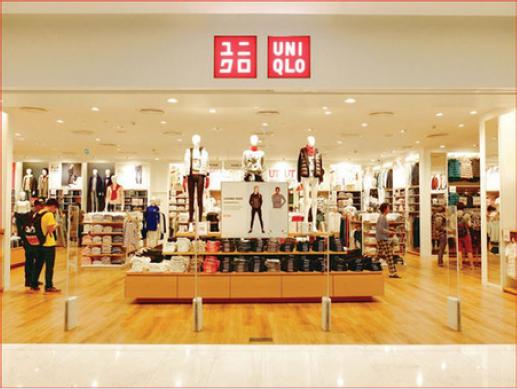UNIQLO is a Japanese clothing company, often described as a Japanese version of the GAP, or the
Question:
UNIQLO is a Japanese clothing company, often described as a Japanese version of the GAP, or “the Ikea of clothes.” It was originally founded in Yamaguchi, Japan in 1949 as a textiles manufacturer. UNIQLO’s first store opened in Japan in 1984. As an SPA (Specialty-store retailer of Private-label Apparel) controlling the entire clothes-making process from design through manufacture and retail, UNIQLO offers high-quality casualwear for men, women, and children at reasonable prices. UNIQLO’s name comes from the words “Unique Clothing.” It is a distinct brand with a wide competitive set including Gap and Primark at the basics end and Zara at a more premium level. The company operates in a space which is not only crowded in terms of competing retailers, but also in the context of marketing messages trying to target similar consumer segments. As a result, the company’s marketing team works hard to get its message across. Marketing innovations such as the Uniqlock and the Loop are useful in helping to build communities and raise the presence of the UNIQLO brand.
The company’s vision is to become the world’s number one casual clothing brand. One key element of this vision is the establishment of a significant,
growing, and profitable overseas business. The first UNIQLO international store opened in the United Kingdom in 2001. By August 2016, UNIQLO International constituted approximately 45% of total UNIQLO sales, with 958 stores (versus 837 stores in Japan). Typical store size is 1,600 square meters, roughly, 16,160 square feet. Flagship stores are larger and these are located in key urban locations. At the beginning of 2017, UNIQLO was present in seventeen countries including Japan, and offered online shopping and shipping to many more, even those where there were no UNIQLO stores.
The founder and Chairman of UNIQLO, Tadash Yanai, and the richest man in Japan, understands that “we cannot win a dominant position in global markets simply by imitating other companies. Instead, true to our unique clothing concept, we seek to create clothes of the future with the potential to change the world.”13 This outsized philosophy is echoed in the company’s mission statement: “To create truly great clothing with new and unique value, and to enable people all over the world to experience the joy, happiness and satisfaction of wearing such great clothes.”
UNIQLO’s global expansion has encountered some failures. In 2001, the first overseas UNIQLO outlets were opened in Shanghai and shortly after, four more in London UK. The retailer set its sights on capturing customers in the United States and the United Kingdom, but a year-and-a-half of poor sales later most of the new stores were closed. Tadashi Yanai told CNN several years later that the number one reason behind such a disappointing international performance was UNIQLO’s lack of brand recognition.
Questions
1. Discuss how issues of culture, language, climate, and religion would affect marketing programs for UNIQLO clothes in international markets.
2. Which segments should UNQILO target to avoid failure in new markets?
3. How could UNIQLO market its clothes to local and global consumers?
4. What potential market segments can you identify from the information provided in this case?
5. Would there be a market for bottom-of-the-pyramid customers? Why or why not?
Step by Step Answer:

International Marketing
ISBN: 9781506389219
2nd Edition
Authors: Daniel W. Baack, Barbara Czarnecka, Donald E. Baack





